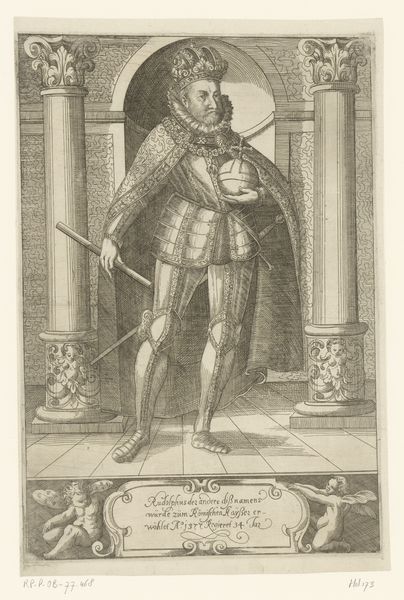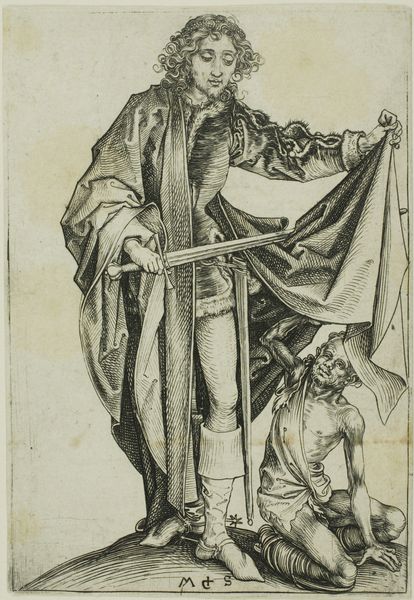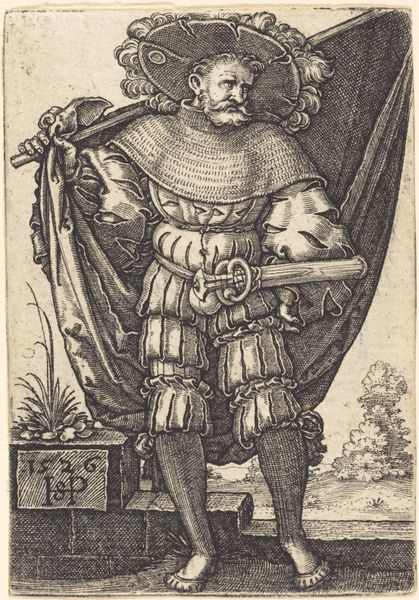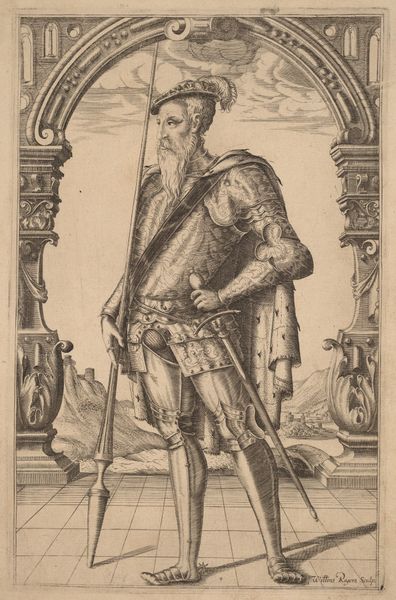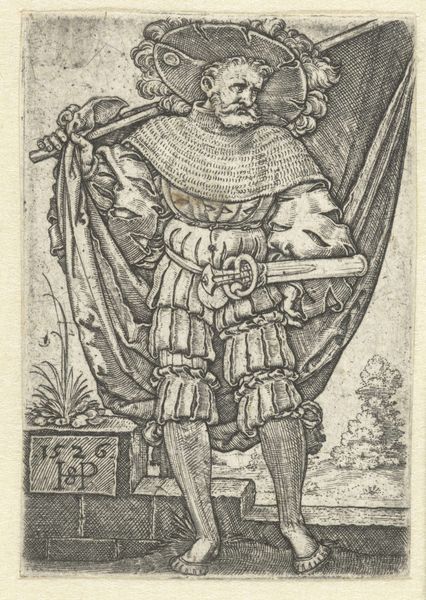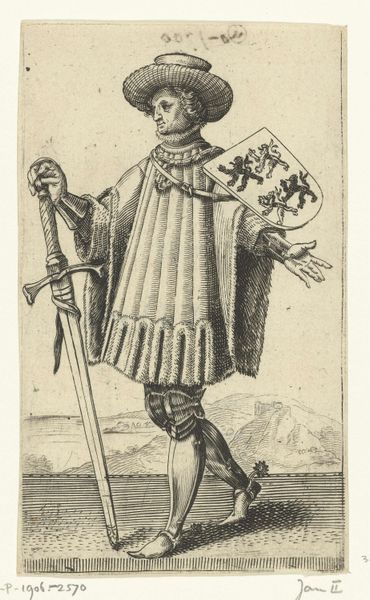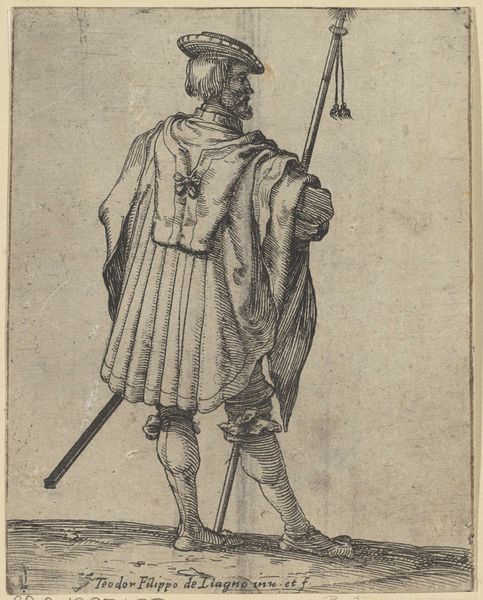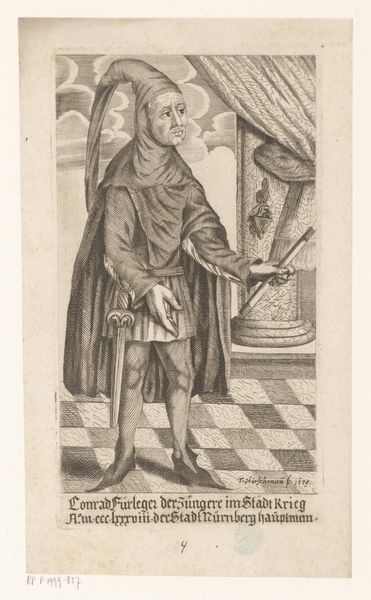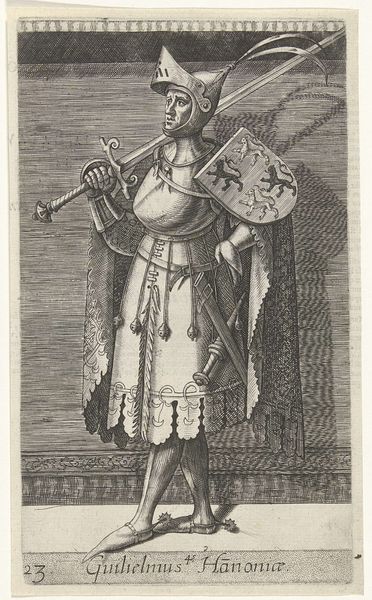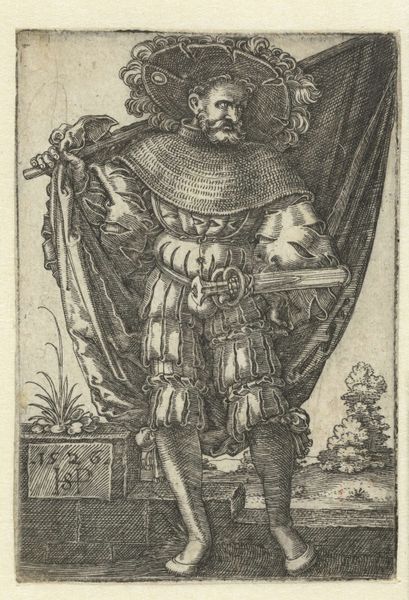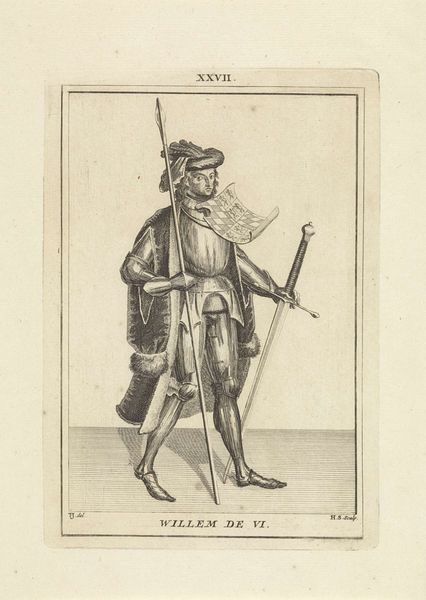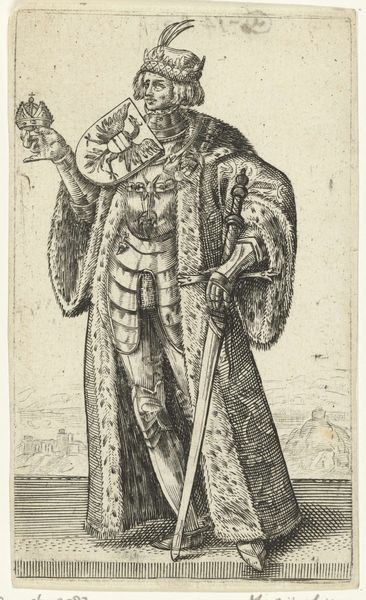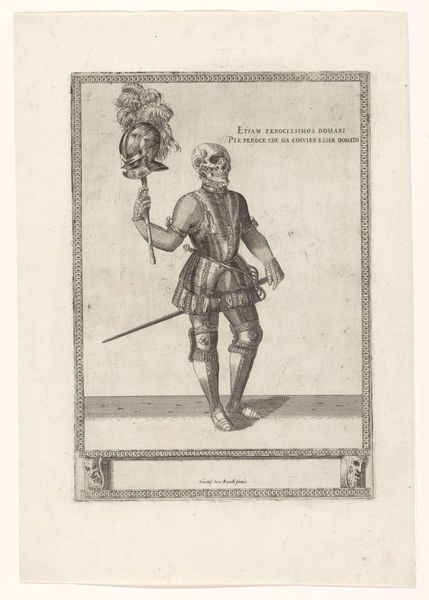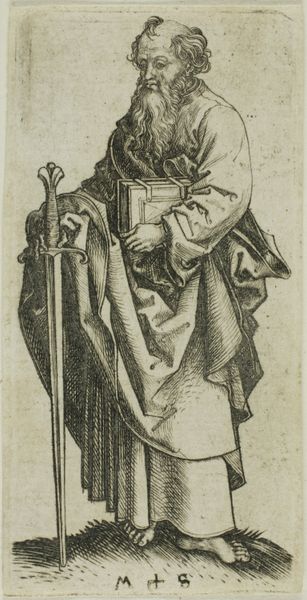
print, metal, engraving
#
portrait
#
baroque
# print
#
metal
#
old engraving style
#
history-painting
#
engraving
Dimensions: height 285 mm, width 194 mm
Copyright: Rijks Museum: Open Domain
Lukas Schnitzer made this portrait of Emperor Frederick III, likely in the mid-17th century, using etching on paper. This printmaking technique involves coating a metal plate with wax, drawing through it to expose the metal, and then submerging the plate in acid, which bites into the exposed lines. The resulting image has a distinctive graphic quality, emphasizing line and texture. The etched lines vary in thickness and depth, creating a sense of light and shadow that defines the Emperor's figure and his ornate surroundings. Look closely, and you’ll see how the density of the etched lines creates darker areas, while the sparser lines suggest lighter tones and textures. The artist's skill is evident in the precise rendering of details, from the folds of the Emperor's robe to the intricate patterns on his armor. The image also speaks to the social context of printmaking at the time. Etchings like this one were relatively affordable and reproducible, allowing for wider dissemination of images and ideas. As such, Schnitzer’s portrait subtly democratizes the image of the Emperor, making it accessible to a broader audience. It shows how so-called “fine art” is always tied to wider issues of labor, politics, and consumption.
Comments
No comments
Be the first to comment and join the conversation on the ultimate creative platform.
